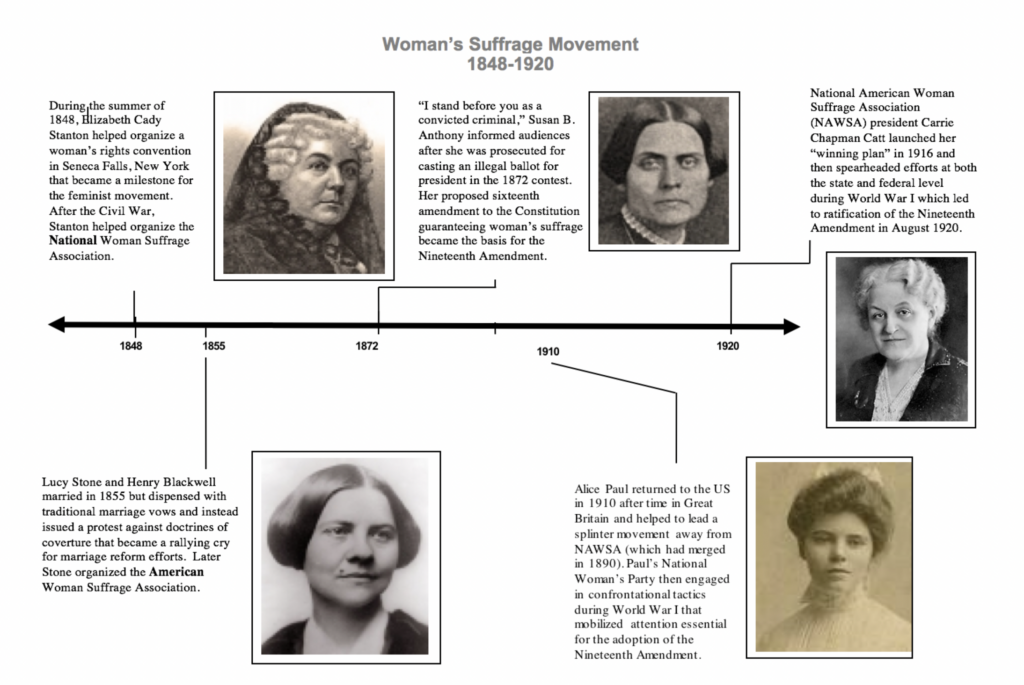Feminism During the Second Founding
My natural rights, my civil rights, my political rights, my judicial rights, are all alike ignored. Robbed of the fundamental privilege of citizenship, I am degraded from the status of a citizen to that of a subject; and not only myself individually, but all of my sex, are, by your honor’s verdict, doomed to political subjection under this, so-called, form of government. —Susan B. Anthony, statement at sentencing, 1873
“Long” Suffrage Timeline
Declaration of Sentiments (1848)
American Equal Rights Association (1866-69)
“The African-American poet, novelist, and journalist Frances Ellen Watkins Harper, who would soon strike out on a two-year speaking tour of the South during which she addressed numerous gatherings of freed women, called on white women to disassociate themselves from racism and work with blacks for the advancement of all. ‘We are all bound together in one great bundle of humanity,’ she proclaimed, ‘and society cannot trample on the weakest and feeblest of its members without receiving the curse in its own soul.’ Harper sat on the platform with Stanton, Anthony, and others in May 1866 at the founding meeting of the American Equal Rights Association, established to press for voting rights for black men and all women. Phillips and Douglass implored the group to postpone woman suffrage. A historic opportunity to extend the suffrage to black men presented itself, while votes for women, they maintained, had no chance of approval by Congress or the states.” –Eric Foner, SECOND FOUNDING, p. 82
- 1863 –Women’s Loyal National League (WLNL) founded
- 1864 –WLNL presents abolition amendment petitions to Congress
- 1865 –American Anti-Slavery Society (AASS) reorganizes with Wendell Phillips as leader
- 1866 –Merger of WLNL and AASA as American Equal Rights Association (AERA)
- 1869 –AERA dissolves amid acrimony over Fifteenth Amendment
- For more on Frances Harper, see STANZAS AND SPEECHES (student project by Forbes, ’25)
Minor v. Happersett (1875)
- Ex parte Milligan (1866)
- Legal Tender Cases (1869-71)
- Slaughterhouse Cases (1873)
- Minor v. Happersett (1875)
- US v. Cruikshank (1875)
- Munn v. Illinois (1876)
- Civil Rights Cases (1883)

